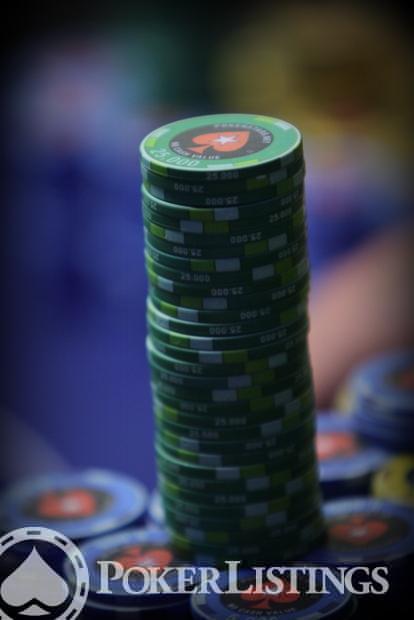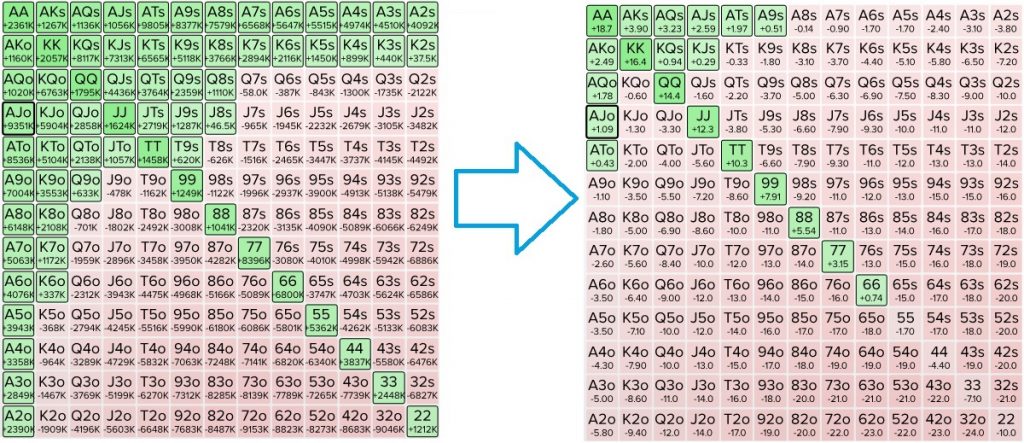Icm Tournament Poker
When you’ve played poker for years, it’s easy to forget that technical poker speak may as well be a different language. Many players just picked up a deck of cards for the first time and are wondering what the hell a reverse implied range merge against a large stack to pot ratio is.
Maybe you are new to poker as well and want to start analyzing the game at a deeper level, but the lingo and foreign concepts get in the way. To help, Card Player brings you this brand new series, Explain Poker Like I’m Five.
Every issue, we’ll take on a new term or idea, perhaps one you might come across elsewhere in this very magazine, and we’ll break it down to its simplest components.
The Concept:ICM
On the bright side, though, ICM will most likely also force our opponents to fold to our shove in one of the next hands and give us a lot of fold equity! More on the Independent Chip Model (ICM) A Step-by-Step Guide to the Independent Chip Model for Poker Tournaments; ICM Calculators and Super Short Stack Poker Tournament Strategy.
- In the next article, I will explain how ICM can be used in tournament poker to help you make profitable decisions near the bubble. Let's get started. What is the independent chip model? The independent chip model assigns $ value to your chip stack in a tournament. How much are 100 chips worth in a tournament?
- Register ICM Explorer ($20). In a poker tournament with prizes of 50%, 30%, and 20%, accumulating chips must be balanced against survival. You may need far more equity to call in a tournament than you would need if you could cash the chips out after the hand. The Independent Chip Model (ICM) is the model of choice for analyzing Sit-N-Go.
- ICM poker (Independent chip model) allows players to estimate the value of their stack at any given point in a tournament. This is quite important as ICM can—especially in the late stages of the tournament—have a very significant impact on the decisions you make.
What Is It?
ICM, also known as the Independent Chip Model, is a mathematical formula used by poker players to calculate the equity of their chip stack in a tournament. Players often use these calculations to make better decisions in subsequent hands or even to determine a fair and equitable deal when chopping up remaining prize money. Tournament chips hold a non-linear value, meaning one big blind is worth more to a short stack than one big blind for the chip leader.

Okay, Now Explain It Like I’m Five
Poker Icm Definition
ICM is math that tells you how much your tournament chips are worth in real dollars.
Give Me An Example
Imagine a $10 sit-and-go with nine total players, creating a total prize pool of $90. The first place prize is $45. The second place prize is $30 and the third place prize is $15.
Each player started with 1,500 in chips, putting 13,500 chips in play. After an hour of action, there are just four players remaining with the following stack sizes and blinds of 100-200:
Joe – 6,200
Mary – 3,900
Erik – 2,600
Wendy – 800
Icm Poker Charts
After inputting the above numbers into an ICM calculator, we can learn a lot about correct strategy for playing on the bubble. For example, Joe might be less inclined to call an all-in from Mary without a big hand in order to protect his sizable chip lead. Erik, on the other hand, would be making a big ICM mistake if he called all in with a marginal hand, since Wendy is down to her last four big blinds.
If the four players agreed to an ICM prize pool chop, the payouts would be as follows:

Joe – $33.06
Mary – $27.24
Erik – $21.90
Wendy – $7.80
As you can see, Joe’s big chip lead means his current stack is worth just over second-place money. Despite being extremely short-stacked, Wendy’s chips still hold significant value.
This calculation is different than a chip chop, which would theoretically award Joe $41.40, which is 46 percent of the remaining prize pool. Wendy, holding just six percent of the chips in play, would be awarded just $5.40.
This contrast is why many poker players prefer to make deals using ICM, while simultaneously adjusting for the differences in skill level between the remaining players. ♠

In poker, the Independent Chip Model (ICM) is a mathematical model used to calculate a player's overall equity in a tournament. The model uses stack sizes alone to determine how often a player will finish in each position (1st, 2nd, etc.). A player's probability of finishing in each position is then multiplied by the prize amount for that position and those numbers are added together to determine the player's overall equity.[1][2]

Poker Icm Calculator
The term ICM is often misunderstood to mean a simulator that helps a player make decisions in a tournament. Such simulators often make use of the Independent Chip Model but are not strictly speaking ICM calculators. A true ICM calculator will have the chip counts of all players, as well as the payout structure of the tournament, as input and each player's equity as output.[3]
The ICM can be applied to answer specific questions, such as:[4][5]
- The range of hands that a player can move all in with, considering the action so far and the stack sizes of the other players still in the hand
- The range of hands that a player can call another player's all in with, and recommends either calling or moving all in over the top, considering all the stacks still in the hand
- When discussing a deal, how much money each player should get
References[edit]
- ^Fast, Erik (2012-03-20). 'Poker Strategy -- Introduction To Independent Chip Model With Yevgeniy Timoshenko and David Sands'. cardplayer.com. Retrieved 12 September 2019.
- ^'ICM Poker Introduction: What Is The Independent Chip Model?'. Upswing Poker. Retrieved 12 September 2019.
- ^Walker, Greg. 'What Is The Independent Chip Model?'. thepokerbank.com. Retrieved 12 September 2019.
- ^Selbrede, Steve (2019-08-27). 'Weighing Different Deal-Making Methods at a Final Table'. PokerNews. Retrieved 12 September 2019.
- ^Card Player News Team (2014-12-28). 'Explain Poker Like I'm Five: Independent Chip Model (ICM)'. cardplayer.com. Retrieved 12 September 2019.
Icm Poker Theory
Further reading[edit]
Icm Poker Chop
- Harrington, Dan; Robertie, Bill (2014). Harrington On Modern Tournament Poker. Two Plus Two Publishing LLC. ISBN1-880685-56-6. Harrington discusses the ICM on pages 108-122.
- Collin Moshman (July 2007). Sit 'n Go Strategy: Expert Advice for Beating One-Table Poker Tournaments. Two Plus Two Publishing LLC. pp. 122–. ISBN978-1-880685-39-6.
- Jonathan Grotenstein; Storms Reback (15 January 2013). Ship It Holla Ballas!: How a Bunch of 19-Year-Old College Dropouts Used the Internet to Become Poker's Loudest, Craziest, and Richest Crew. St. Martin's Press. pp. 17–. ISBN978-1-250-00665-3.